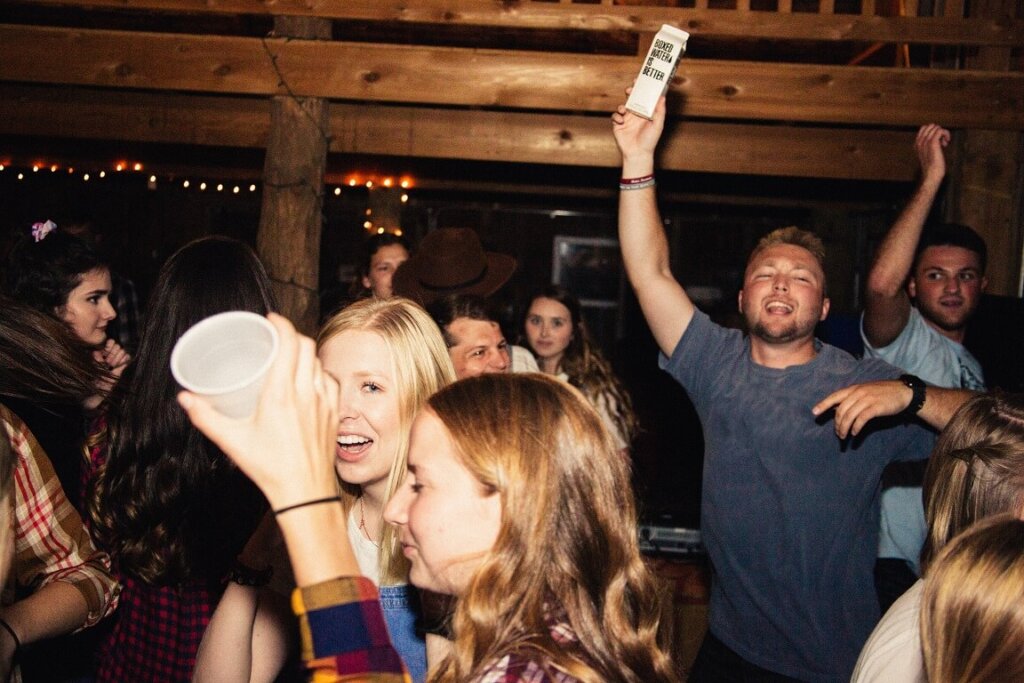The parties are over on Airbnb as the company enforces a permanent ban
Worldwide: Airbnb has announced that it will make its ban of parties on its listings a permanent policy after seeing a sharp drop in unauthorized gatherings since putting temporary restrictions on parties and events in its listings worldwide in August 2020.
The company said the temporary ban had been shown to be “effective” in curbing reports of holiday disruptions and disruptions in its ads, with a 44% year-over-year drop in the rate of party reports since it sparked a positive response from the Airbnb host community, as well as local community leaders and elected officials.
In the UK, Airbnb said there had been a 63% drop in party-related complaints since the temporary ban was introduced, while in 2021 more than 6,600 guests were suspended from Airbnb for attempting to violate party ban.
Disruptive parties and events will continue to be banned, including invitational gatherings. So-called “party house” properties will also remain strictly prohibited, following a flood of reports of unauthorized gatherings in Airbnb listings during the first Covid-19 lockdowns in 2020.
As part of codifying Airbnb’s permanent party ban, the company will now remove the 16-person cap it imposed during the pandemic to limit the spread of the coronavirus before the vaccine was rolled out. This will allow the largest homes listed on the platform to be re-booked at full occupancy.
The company also updated its policies to remove the “event-friendly” search filter and the “parties and events allowed” internal rules.
Any guest who attempts to violate Airbnb’s new rules could face “serious consequences”, ranging from account suspension to complete removal from the platform. Hosts covered by Property Damage Protection will be covered by Airbnb AirCover for Hosts.
In August 2020, Airbnb issued a temporary ban on parties and events on its listings worldwide, initially “until further notice”, in the interest of public health. However, the company said the decision was made to apply a permanent ban now because it had become “more than a public health measure” and had been “a fundamental community policy to support our guests and their neighbors”.
Previously, Airbnb had tightened its measures to ban the two “open invitation” parties. [i.e. those advertised on social media] as well as “chronic party houses” that were causing ongoing nuisance in their neighborhoods, in late 2019. The move was prompted by a fatal shootout at a Halloween party at a California property rented through the platform, prompting widespread outrage and an outcry for more restrictions on parties and unauthorized gatherings.
This has further led to the creation of a Neighborhood Helpline in a number of jurisdictions to allow neighbors to communicate any concerns directly to Airbnb and help it enforce the party house ban.
Looking ahead, the company has declared its “ongoing commitment” to encouraging and supporting community safety by expanding its prevention of anti-party reservations, special anti-party measures during holidays, a 24-hour security line , a neighborhood helpline and partnership with Vrbo to share information about repeat “party house” offenders in the United States.
Additionally, plans to introduce a potential exception process for specialty and traditional hospitality venues remain under review, according to Airbnb.
In order to promote a safe and secure experience for solo travelers, Airbnb recently rolled out its “Solo Traveler” in-app experiencewhich allows customers traveling alone to share their booking itinerary with their most trusted contacts around the world with one touch in case of an emergency.
The party ban has also proven to be financially efficient for the home-sharing platform.
In May this year, the company announced that its revenue had increased by 70% over the previous year, reporting a total of $1.5 billion in the first quarter. Projected revenue for the second quarter of the year is expected to be between $2.03 billion and $2.13 billion.
Removing the 16-person limit is an opportune time with Airbnb summer outing last month, which included the launch of new property categories, ranging from castles in Europe to vineyards in the United States and beachfront villas in the Caribbean. Airbnb believes it can facilitate more multi-generational family travel and larger groups in safe, non-disruptive circumstances that will allow it to capitalize on a key segment targeted by competitors such as Vrbo and Booking.com.
Airbnb spokesperson Ben Breit said Reuters that he was unsure if there was a “finish line” to the case, but promised that the company would continue to resolve any issues that arose.


Comments are closed.